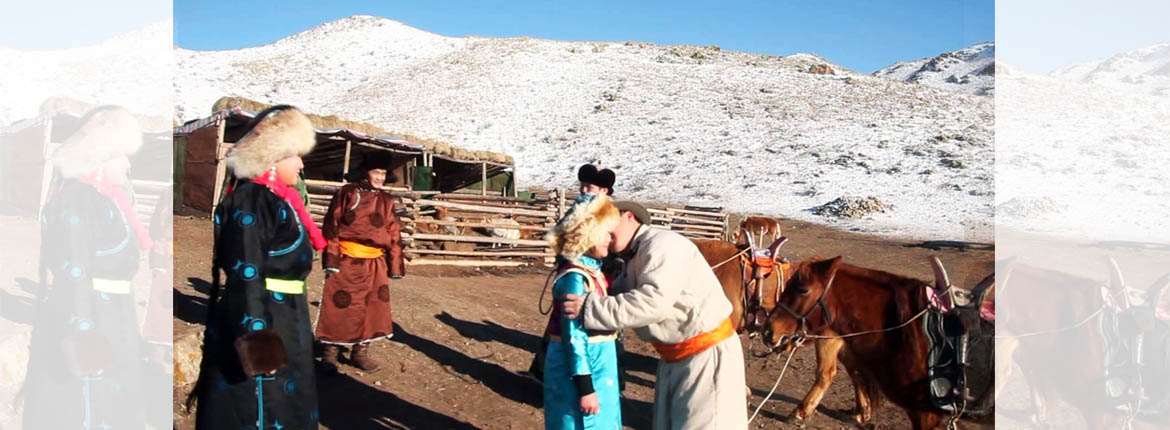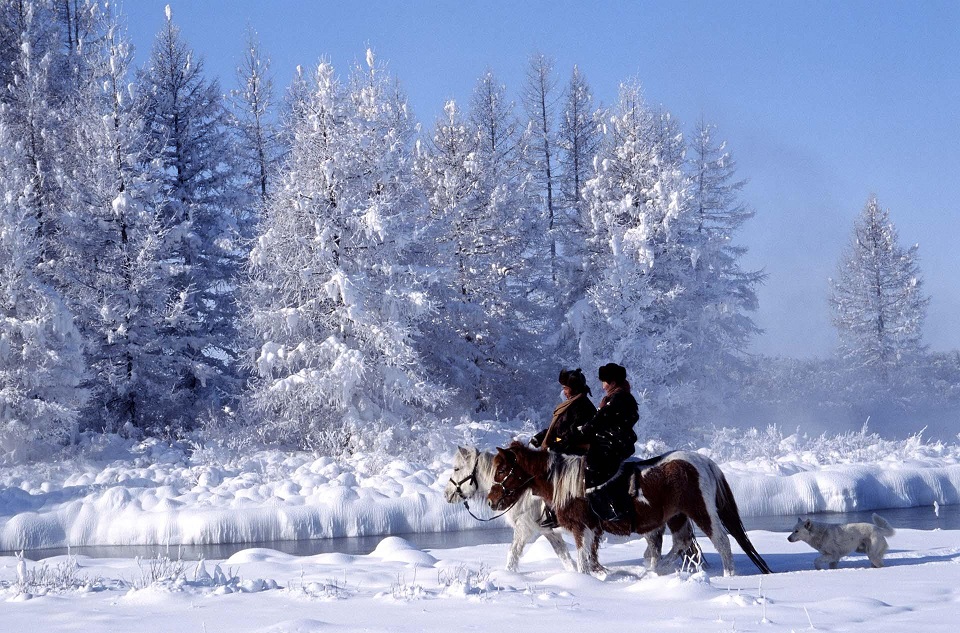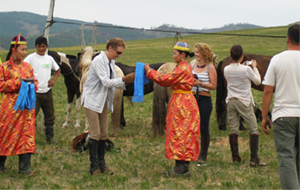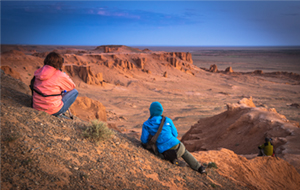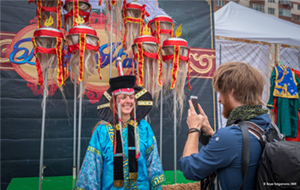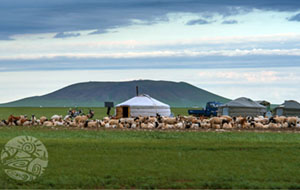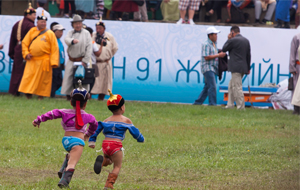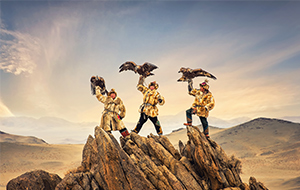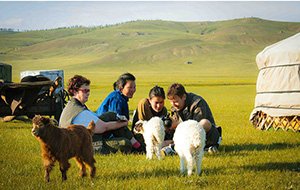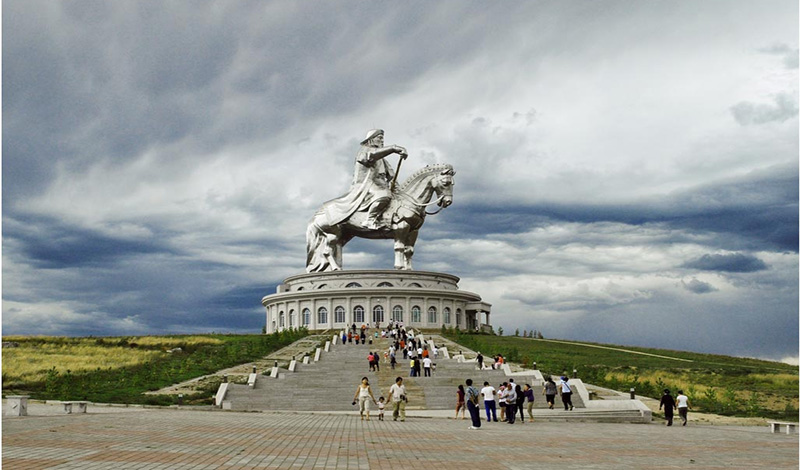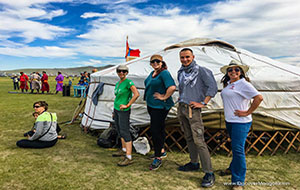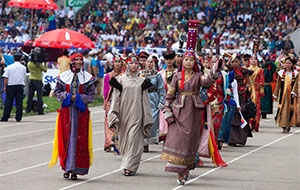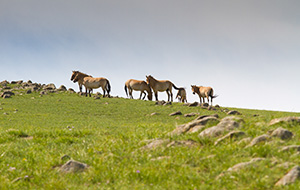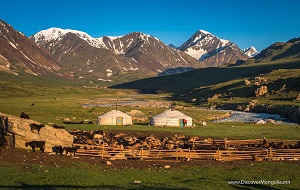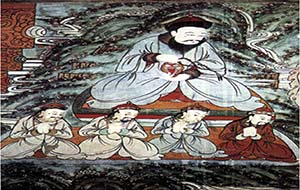During the 1950 – 1960s, Tsagaan Sar was celebrated only in the countryside as a Herder Festival and banned in the city. Later in 1988, this important traditional holiday began to be celebrated as the first day of the Lunar New Year nationwide. Nowadays it turns out a family-oriented holiday that shows respect to the elderly and encourages younger Mongolians to learn about their traditions and cultures. Also, it is considered as a holiday to cheer up herders for successfully passing the harsh winter and it is a celebration for welcoming the warmer days of spring.
Technically Tsagaan Sar allows all Mongolians to proud of their national heritage, culture, tradition, and custom. Tsagaan Sar gives an opportunity to unite families and people, strengthen the family bond and enables people to get to know their family tree.
Families Visiting Elders
Preparation for the Tsagaan Sar
People have to welcome the New Year and celebrate the Tsagaan Sar with a positive and optimist mind, kind heart and pure soul without dark thoughts. It is prohibited to do, think and say bad things during the holiday. Also, the debts must be repaid before the new year and no one should argue during the holiday as it is believed that the entire year ends up arguing and quarreling.
The homes, clothes, and bodies must be cleaned too. Mongolians believe that good luck comes where there is cleanliness. In this regard, there is a ton of preparation work before Tsagaan Sar. At least one month prior to the holiday, all families are busy with cleaning their homes and yards, repairing the broken household furniture and appliances, getting their traditional clothes called “Deel” ready and cooking the special food which will be served during the holiday. Especially families with elders prepare a big feast table symbolizing prosperity and fullness in the coming year as well as gifts for the guests. Even the preparation work involves and unites all family members, relatives, and neighbors.
Making Buuz (Dumplings)
The celebration of Tsagaan Sar
On Tsagaan Sar eve called Bituun, homes, foods and feast tables must be ready. Bituun falls on the 30th day of the last twelfth month of the Lunar Calendar. On this day, families gather together at their parents or grandparents, follow some special rituals and eat until they are full. It is believed that staying hungry on this day will prophet hunger for the country. People begin eating a special white dish called ’’Tsagaalga” made by dairy products and rice. Since the name of the festival itself indicates a white moon or month, traditional dairy products have symbolic representation in the festival to whiten and purify what’s dark. Moreover, a wrestling competition held among 256 wrestlers on Bituun and families enjoy watch it together on TV.
On the first day of the Tsagaan Sar, people have to wake up before the sunrise and put on their new or clean clothes. Then men climb to the nearest hill or mountain to watch the first sunrise of the New Year while women make milk tea at home and offer it to earth and god wishing the best to their family. Thereafter they visit their parents, grandparents or elder relatives. Mongolians perform a special greeting called ’’Zolgolt” during the holiday. When greeting someone, the younger person stretches both arms with palms facing upwards to the older person. The older person puts their arm on the top while the younger one`s arm goes underneath supporting the elbow of the older one. Then the younger should say “Amar baina uu?” first meaning “How are you?”. In turn, the elder responds and kiss or sniff both cheeks of the younger one. Each visit must start with "zolgolt" to the eldest one in the house and in order of age.
It is common to greet the elders with money and a blue scarf called „Khadag”.
Afterward, guests take a seat and exchange snuff bottles which contains powdered tobacco asking each other ’’How was your overall health last year?”. If you are visiting herder family, it sounds pleasant to ask “Did you pass the winter successfully without loss of livestock?”. Meanwhile, the guests served with milk tea first and dairy products then the ’’buuz”, a steamed dumpling filled with meat. Guests have to taste everything offered by the host or main dishes on the table. Each visit lasts more or less 30 minutes. When guests leave, the host family gives gifts to everyone to thank their visit. The gifts are usually a bar of chocolates or candy, clothes, cash or household items. Note that guests have to receive the gifts with two hands.
The first 15 days are significant but Tsagaan Sar holiday lasts for 3 days officially. When people finished visiting their parents, grandparents and elder relatives, they visit their neighbors and other old people`s house they know. On the 7th day of the Tsagaan Sar, people taboo to go out of the home to visit other families and greet. Moreover, there are some rituals primarily linked with Buddhism. Many people destine to temple or monasteries to hear prayers and chants for the well-being for the new year.
Mongolian Couple Visiting Elders
Dos and Don'ts of Tsagaan Sar
We mentioned that the Tsagaan Sar is rich in special rituals and customs. Following is the list of main Dos and Don'ts that you should keep in mind;
- When you greet someone, make sure to ask the age of the people. Note that you must greet the most senior people first then the order of age.
- If you offered snuff-bottle, receive it with your right hand and give back the snuff-bottle with the loosened cap as you received.
- Husband and wife are prohibited to perform “Zolgolt”. It is believed to lead to divorce or bad luck. Also, pregnant women don`t do “Zolgolt” as it is believed that the sex of babies could be changed.
Mongolians follow an astrological stream called Tugs Buyant and the dates are different every year. Mainly it occurs from January to March. This year, the first day of Tsagaan Sar falls on February 24. The upcoming 2020 is the year of "mouse". If you really want to know Mongolian culture, it is definitely your must-see festival.
Get in touch with us to organize your remarkable and unforgettable Tsagaan Sar experience. Happy Tsagaan Sar!
 Chat with Us on WhatsApp
Chat with Us on WhatsApp








